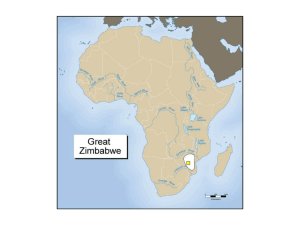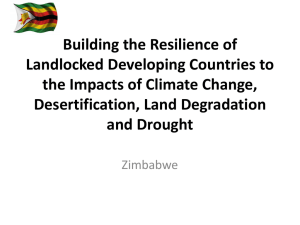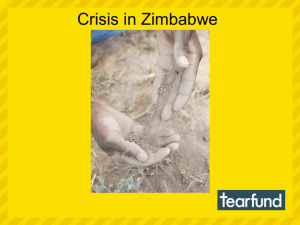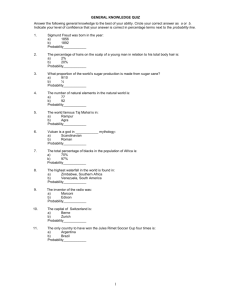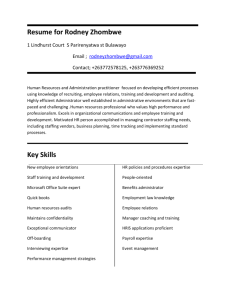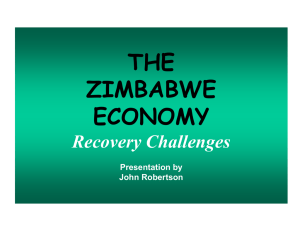Zimbabwe has been in the news recently in regards to Human
advertisement
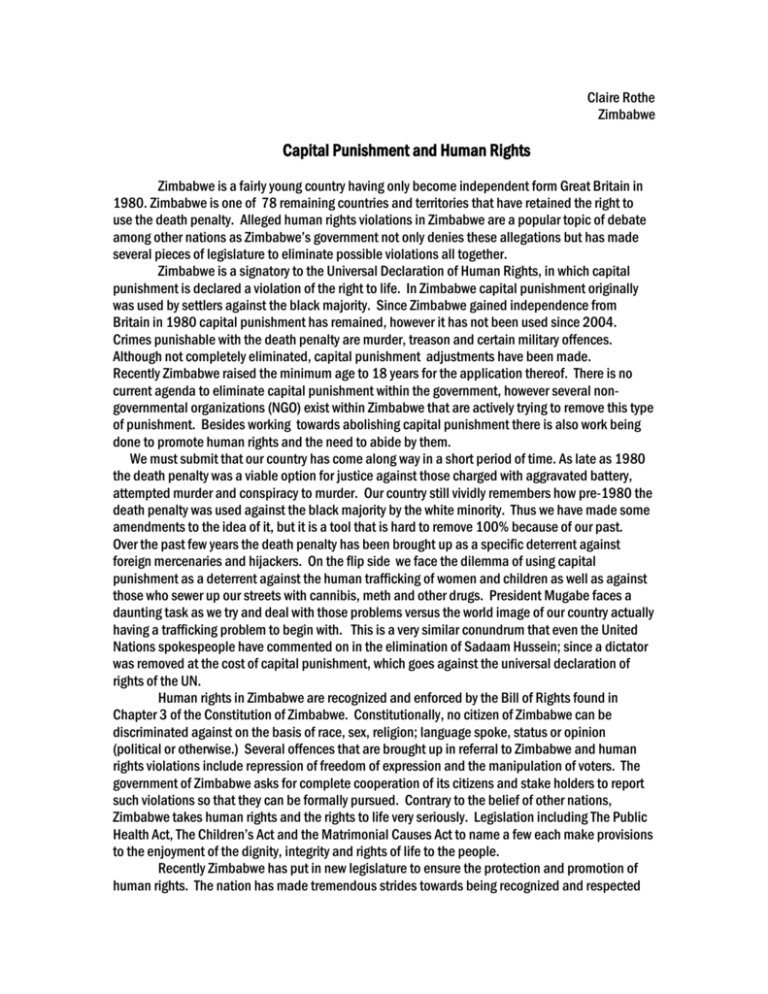
Claire Rothe Zimbabwe Capital Punishment and Human Rights Zimbabwe is a fairly young country having only become independent form Great Britain in 1980. Zimbabwe is one of 78 remaining countries and territories that have retained the right to use the death penalty. Alleged human rights violations in Zimbabwe are a popular topic of debate among other nations as Zimbabwe’s government not only denies these allegations but has made several pieces of legislature to eliminate possible violations all together. Zimbabwe is a signatory to the Universal Declaration of Human Rights, in which capital punishment is declared a violation of the right to life. In Zimbabwe capital punishment originally was used by settlers against the black majority. Since Zimbabwe gained independence from Britain in 1980 capital punishment has remained, however it has not been used since 2004. Crimes punishable with the death penalty are murder, treason and certain military offences. Although not completely eliminated, capital punishment adjustments have been made. Recently Zimbabwe raised the minimum age to 18 years for the application thereof. There is no current agenda to eliminate capital punishment within the government, however several nongovernmental organizations (NGO) exist within Zimbabwe that are actively trying to remove this type of punishment. Besides working towards abolishing capital punishment there is also work being done to promote human rights and the need to abide by them. We must submit that our country has come along way in a short period of time. As late as 1980 the death penalty was a viable option for justice against those charged with aggravated battery, attempted murder and conspiracy to murder. Our country still vividly remembers how pre-1980 the death penalty was used against the black majority by the white minority. Thus we have made some amendments to the idea of it, but it is a tool that is hard to remove 100% because of our past. Over the past few years the death penalty has been brought up as a specific deterrent against foreign mercenaries and hijackers. On the flip side we face the dilemma of using capital punishment as a deterrent against the human trafficking of women and children as well as against those who sewer up our streets with cannibis, meth and other drugs. President Mugabe faces a daunting task as we try and deal with those problems versus the world image of our country actually having a trafficking problem to begin with. This is a very similar conundrum that even the United Nations spokespeople have commented on in the elimination of Sadaam Hussein; since a dictator was removed at the cost of capital punishment, which goes against the universal declaration of rights of the UN. Human rights in Zimbabwe are recognized and enforced by the Bill of Rights found in Chapter 3 of the Constitution of Zimbabwe. Constitutionally, no citizen of Zimbabwe can be discriminated against on the basis of race, sex, religion; language spoke, status or opinion (political or otherwise.) Several offences that are brought up in referral to Zimbabwe and human rights violations include repression of freedom of expression and the manipulation of voters. The government of Zimbabwe asks for complete cooperation of its citizens and stake holders to report such violations so that they can be formally pursued. Contrary to the belief of other nations, Zimbabwe takes human rights and the rights to life very seriously. Legislation including The Public Health Act, The Children’s Act and the Matrimonial Causes Act to name a few each make provisions to the enjoyment of the dignity, integrity and rights of life to the people. Recently Zimbabwe has put in new legislature to ensure the protection and promotion of human rights. The nation has made tremendous strides towards being recognized and respected for their stances on human rights and capital punishments. Zimbabwe will continue to strive towards filling all obligations of the African Charter in order to ensure the dignity, integrity and happiness of its people. We will strive to meet the overall goals of the United Nations.

